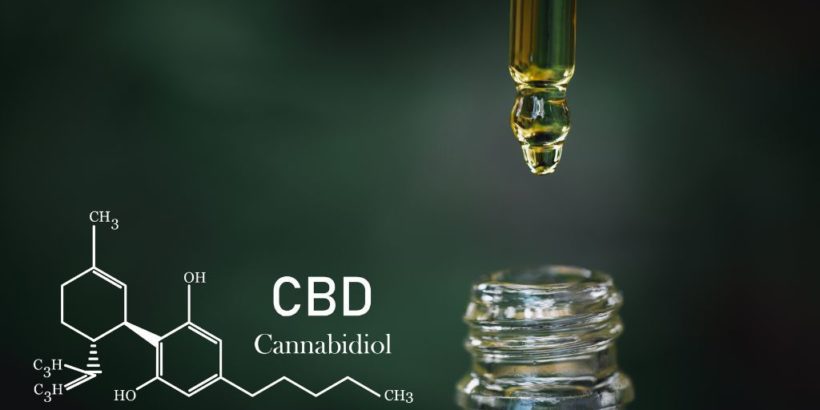Cannabidiol (CBD) is an absolute lifesaver for many people facing serious medical conditions but can you actually bring it on a plane legally or will TSA confiscate it and potentially arrest you?
In this article, we’ll take a look at whether or not you can bring CBD on a plane and I’ll give you some tips and insight into bringing the different types (oils, creams, tinctures, etc.) with you so that you’ll know exactly what to expect.
Table of Contents
Can You Bring CBD on a Plane?
Bringing CBD on a plane can be complex due to the interplay of federal, state, and TSA regulations.
At the federal level, CBD products containing less than 0.3% THC are legal. However, state laws regarding CBD can vary significantly, with some states imposing stricter regulations. Therefore, it’s crucial to research the laws of both your departure state and your destination state to ensure compliance.
While the Transportation Security Administration (TSA) doesn’t actively search for CBD during security checks, if they discover it and suspect it violates state or federal laws, they could refer the matter to law enforcement. However, many travelers successfully bring CBD on planes without issue.
Thus, while it’s feasible to bring CBD on a plane, it’s essential to understand the associated regulations and risks.
Tip: Use the free app WalletFlo to help you travel the world for free by finding the best travel credit cards and promotions!
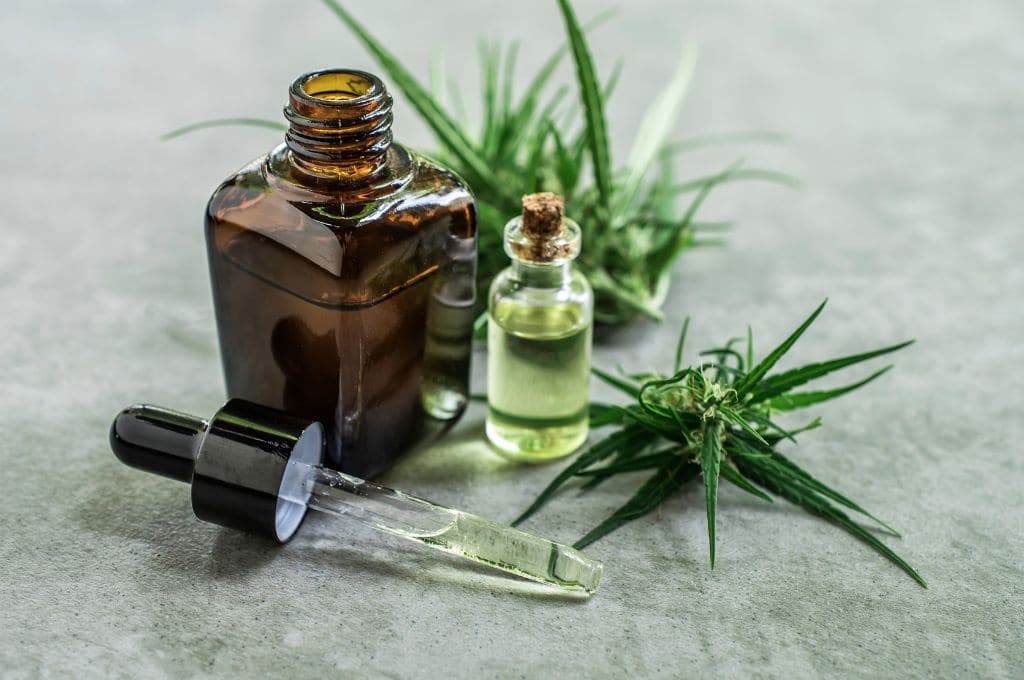
TSA’s purpose
TSA stands for “Transportation Security Administration” and the purpose is to “strengthen the security of the nation’s transportation systems while ensuring the freedom of movement for people and commerce.”
TSA is concerned about dangerous threats such as explosives and not with enforcing laws and penal codes. This is why they do not check for arrest warrants.
So TSA agents are not actively going to search your carry-on bag or personal item for CBD. Plus, because CBD is not psychoactive like marijuana containing THC, it’s considered less of a “drug” to many.
Therefore, individuals may have more leeway when it comes to CBD even if they are operating in somewhat of a gray area of the law.
Related: Do TSA Officers Have Guns & Arrest Powers?
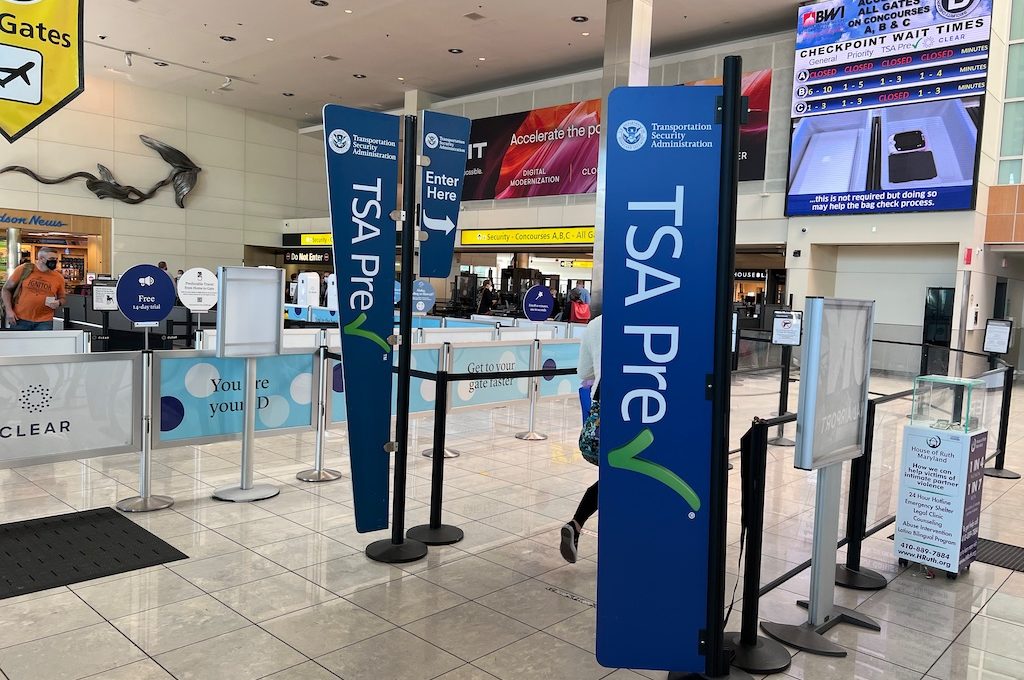
The federal status of CBD
Thanks to the 2018 federal Farm Bill, hemp-derived CBD is legal at the federal level. However, these CBD products must contain less than 0.3% of THC.
Keep in mind that the law applies to hemp-derived CBD and not marijuana-derived CBD. According to the USDA:
“Marijuana and industrial hemp are different varieties of the same plant species, Cannabis sativa L. Marijuana typically contains 3 to 15 percent THC on a dry-weight basis, while industrial hemp contains less than 1 percent (Blade, 1998; Vantreese, 1998). Most developed countries that permit hemp cultivation require use of varieties with less than 0.3 percent THC. However, the two varieties are indistinguishable by appearance. DeMeijer et al. (1992), in a study of 97 Cannabis strains, concluded that short of chemical analysis of the THC content, there was no way to distinguish between marijuana and hemp varieties”.
So the bottom line is that if your CBD is extracted from a cannabis plant that has more than .3% THC, then the DEA will consider it to be a federally restricted Schedule I substance.
Since you are in a quasi federal jurisdiction when going through airport security, you should be aware you’re violating federal law with CBD containing over .3% THC.
With that said, unless your packaging explicitly indicates that the CBD contains more than .3% THC, it doesn’t seem that TSA or law-enforcement would have the ability to know the THC percentage without conducting some type of testing.
And because TSA is not primarily concerned with finding drugs, from a federal perspective, traveling domestically with CBD is usually not very risky.
Related: TSA Marijuana Rules Explained (Flying with Weed)

State laws
Just like with marijuana, state laws can differ widely when it comes to CBD. The good news is that compared to marijuana, more states have legalized CBD in at least some forms.
The trick is to be aware of what type of forms are legal and any conditions attached to the legality.
For example, some states may not allow CBD in edible forms such as in gummies or in drinks. Sometimes these laws are directed more towards restaurants and cafés but they could still apply to individuals.
States that are strict on CBD legality may require some type of diagnosis such as epilepsy in order to legally carry CBD.
They also might limit the type of CBD to hemp-derived CBD and to CBD that has a THC content no higher than 0.3% (i.e., the federal standard).
If a state has fully legalized marijuana for adult consumption, you can probably bring CBD products with any % of THC with you, subject to any limitations placed on quantity/age/etc.
You can use this map to help you check on the different laws for different states.
Just be aware that these laws can change rapidly so I would always advise to do a state specific search before traveling to see what the latest developments are.
Airport rules
Some airports have specific rules that prohibit marijuana within an airport. However, I’m not aware of airports that have CBD-specific rules.
Bringing different types of CBD on a plane
Since CBD can come in so many different forms you have a lot of different options when transporting it through airport security and on to a plane.
CBD oil
If you want to bring CBD oil to through airport security and onto a plane it’s going to be considered a liquid and be subject to the TSA liquids rule.
This means that your container can be no larger than 3.4 ounces and technically you should place it into a clear, quart size bag.
Because CBD oil could be medically prescribed, you might be able to utilize an exception to the liquids rule which allows liquid medication containers to be larger than 3.4 ounces.
Due to the somewhat gray area of CBD in certain states, this could be something that is YMMV. In other words, it may not be enforced consistently.
Although TSA does not require you to carry prescriptions with your medications, I would probably bring any supporting documentation such as a prescription, doctor’s recommendation letter, and medical marijuana license if I was worried about my CBD getting through.
CBD tinctures
Tinctures are one of the most common ways to take CBD since it only involves taking a couple of drops in the mouth.
These will also be subject to the liquids rule but typically tinctures come in small containers no larger than 3.4 ounces. Therefore, a lot of the containers will comply with the liquids rule by default.
The packaging on tinctures is usually pretty descriptive and specific so it will often clearly spell out that it contains CBD and perhaps even a percentage of THC.
CBD creams
CBD creams would also fall into the liquid category so the same 3.4 ounce rule would apply and medical exceptions could also apply.
Lots of CBD creams will explicitly state CBD on the label so there’s a good chance that if someone inspected your cream they would see that you are transporting CBD.
Because it is considered a liquid it’s possible that that could cause the cream to be given a closer look although the vast majority of TSA agents probably could not care less that you are traveling with CBD.
CBD vapes
You are allowed to bring vapes on a plane and CBD vapes can look like any other type of vaping instrument so you may not have any problems bringing a CBD vape on a plane.
Just be aware that the batteries used in the vapes may not be allowed in your checked baggage. So while you could place a CBD cartridge in your checked baggage, you may need to bring the battery with you in your carry-on.
And in case you were wondering, you cannot vape CBD on a plane.
CBD gummies (edibles)
Lots of people rely on gummies or some other type of edible to take their CBD.
This is probably one of the easiest ways to transport your CBD because gummies and edibles can look like any other type of food or snack.
They can also easily be placed in either a carry-on or checked bag. And if you need to take some on the plane, it’s one of the easiest ways to discreetly consume your CBD.
Unless there is labeling on the food or packaging, somebody would have to test your edibles to verify that they contained CBD. That would be extremely unlikely when flying in the US as that is not a top concern for TSA.
CBD drinks
CBD drinks are obviously going to be subject to the liquids rule. Drinks in the original packaging will probably display the CBD content.
Because of that and the liquids rule, it might be easier to transport CBD drinks in your checked baggage.
CBD flower
You are definitely allowed to bring plants on a plane so CBD in flower form is not off-limits.
The problem is that hemp-derived CBD flower can look just like marijuana which is 100% illegal in many states and airports.
Because it can be easily detected by the look and potentially the smell, you could run into issues with someone thinking that you are bringing marijuana illegally.
As the statement by the USDA states, it could require a chemical analysis to distinguish the two.
For that reason, I would probably try to avoid transporting CBD flower right now unless you are flying between two states that have completely legalized marijuana. And even then you need to be aware that some airports may restrict marijuana, not to mention the federal status of MJ.
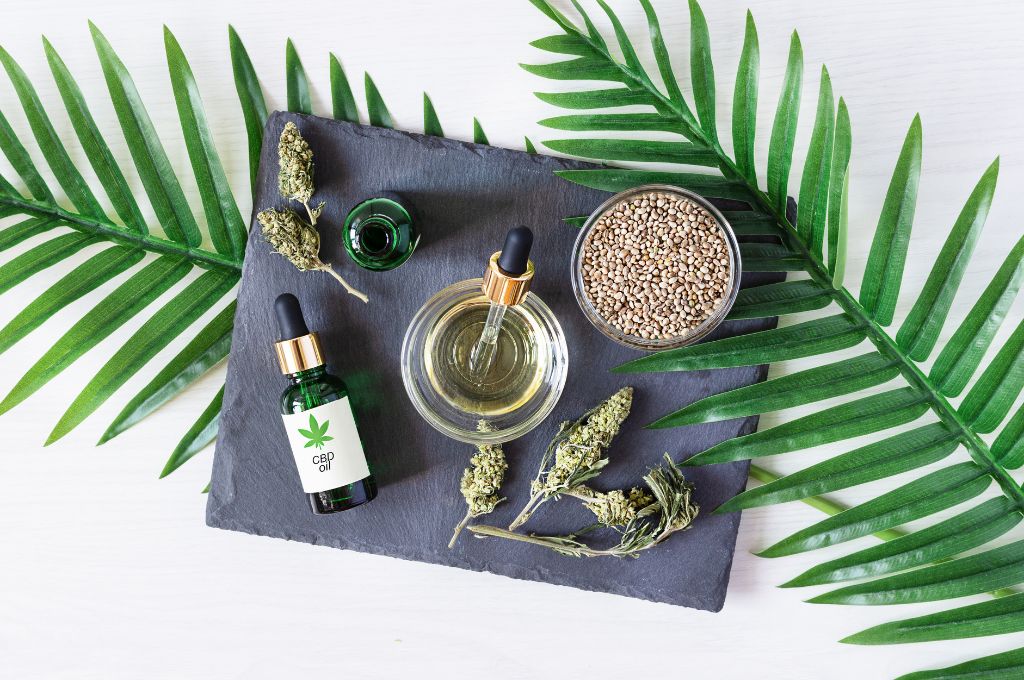
Knowing what is in your CBD
Unfortunately, not every manufacturer abides by the highest standards when producing CBD products. This means that in some cases your CBD may contain more or less THC than the label states or that you were led to believe.
In some cases, it might even contain enough THC to be tracked down by a drug dog (although that seems unlikely).
But you could imagine an instance where you believe you have legal CBD based on the perceived THC level but a chemical test is done that shows the substance has higher than .3%. After all, that is a very low number.
So the point is just to be extra careful about the type of CBD products you bring through the airport.
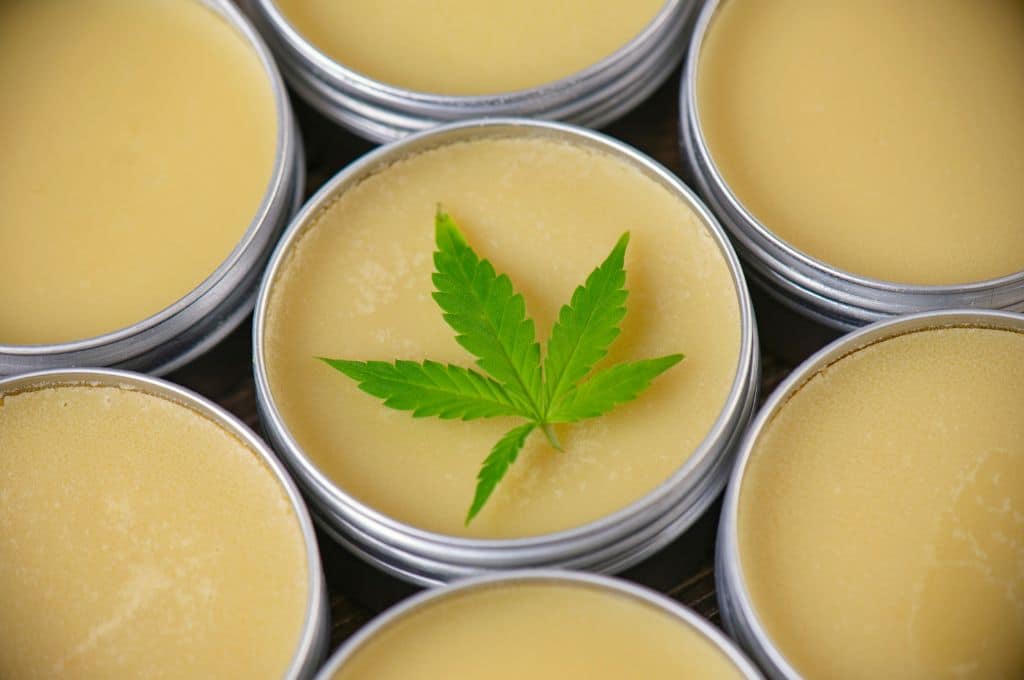
How much CBD to bring?
Anytime you’re bringing something through the airport that is potentially problematic you should always seriously consider limiting the quantity you bring with you.
It’s one thing to get through with a couple of CBD vapes and some CBD gummies, but it’s quite another to transport pounds and pounds of CBD through TSA.
It’s just a matter of bringing attention to yourself and getting questioned about why you are taking such a high volume of CBD with you.
When it comes to medication, it’s usually acceptable to bring a quantity needed for the duration of your trip.
This rule of thumb may not apply when you are traveling for extended periods of time such as several months but for your average trip of a few days or maybe a couple of weeks, this rule allows you to offer a reasonable explanation for the quantity of drugs you have with you.
International travel
When traveling internationally, you really have to be careful with any type of drugs.
Some countries have some extremely strict rules for drugs that are otherwise 100% legal in the US. In some countries, getting caught with CBD could land you in jail with a hefty sentence.
For example, there was the soccer coach from the UK who was initially sentenced to 25 years when caught with CBD in Dubai (his sentence was brought down to 10 years, but still… wow).
My recommendation is always to avoid bringing banned substances into other countries.
Also, you need to be equally as careful entering the country as you would be leaving. For example, there were reports as recently as 2019 of people getting arrested at the airport with CBD when coming back into the country.
It seems many of those cases did get dropped eventually but some people have had to spend some time in jail during that process.
A lot of the CBD arrests seemed to be happening in 2019 which was just after the legalization of hemp-derived CBD in late 2018.
Since then, it appears things have potentially gotten better but you still need to remain aware that things might come up, especially if your CBD is confused for marijuana containing THC.
What if you are caught with CBD?
If you are caught with CBD the situation could play out a few different ways.
First, you may be questioned about it and have the opportunity to provide an explanation. Perhaps you could remind a TSA agent or officer that it is legal because you have under .3% THC.
Or maybe you have a prescription or doctor’s note that you can show and you can explain that you use CBD for a specific medical condition.
In another situation, an agent could throw the CBD out (rightly or wrongly) on the basis that it’s an illegal drug.
And there is always the scenario where you get referred to law-enforcement. As mentioned above, it appears law-enforcement is getting better about recognizing the legality of CBD.
However, if you were in a state where you are in possession of a prohibited type of CBD you could get fined, arrested, and taken to jail.
Final word
All forms of CBD are not legal in every state and only forms of CBD containing less than .3% THC are legal on the federal level. This means that you need to be careful when bringing CBD on a plane.
However, TSA is not actively looking to find drugs (including CBD) and there are several ways to transport CBD discreetly. Because of that, many travelers can carry CBD with them on a plane with very little to worry about.
Daniel Gillaspia is the Founder of UponArriving.com and the credit card app, WalletFlo. He is a former attorney turned travel expert covering destinations along with TSA, airline, and hotel policies. Since 2014, his content has been featured in publications such as National Geographic, Smithsonian Magazine, and CNBC. Read my bio.

